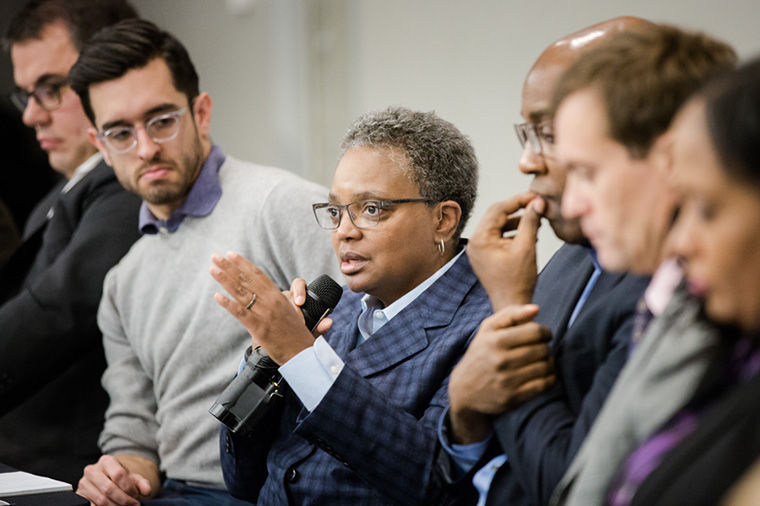Panelists debate how soon police videos should be released
Chicago Police Board President Lori Lightfoot spoke about transparency at a panel on Jan. 20 at East-West University.
January 25, 2016
Experts shared ideas on how City Hall and the Chicago Police Department can better handle video evidence and increase transparency at a Jan. 20 panel held at East-West University.
The event, hosted by the Illinois Campaign for Political Reform, an organization that hosts free educational programs at local colleges and universities to promote interaction with government, comes on the heels of a federal investigation into the CPD and newly released video evidence showing the 2013 fatal police shooting of unarmed 17-year-old Cedrick Chatman.
Panelists included president of the Chicago Police Board Lori Lightfoot and head of the Fraternal Order of Police Dean Angelo.
Lightfoot said she is concerned about the management of video evidence related to police-involved shootings and how the footage can undermine the integrity of ongoing investigations if released too soon.
“Videotape, as we know, is an incredibly powerful piece of evidence,” Lightfoot said. “It has the ability to really shape a discussion and shape people’s perceptions in innumerable ways.”
Lightfoot said video evidence can alter eyewitness testimonies because people may change their original recollection of events based on what they see on camera.
She does not think withholding video evidence from the public is the solution, however. Lightfoot said striking a balance between the public’s right to information and assuring the integrity of investigations is key. She said between 30 and 60 days might be “a good place to land” in terms of releasing
video evidence.
Angelo said he disagrees with Lightfoot about when to release a video to the public.
“I am not 100 percent in agreement on any time frame as far as releasing things that went to video or any type of other evidence based on a clock,” Angelo said. “I think it’s based on the investigation.”
Lightfoot and Angelo spoke about the importance of avoiding quick solutions to systemic problems.
“I believe so many individuals don’t realize the impact they’re making on reactionary proposals,” Angelo said. “It’s a little bit too soon to try and implement legislation.”
Christopher Smith, a civil rights attorney on the panel, said videos should be released promptly except in special circumstance and there should be a strict and transparent process for determining whether a video should be withheld.
Smith said a small window of time is needed to ensure information is not wrongfully withheld from the public.
“We need to have a rule when it comes to police actions and police shootings and things of that nature [and] have a rule that video and information must be released,” Smith said.








